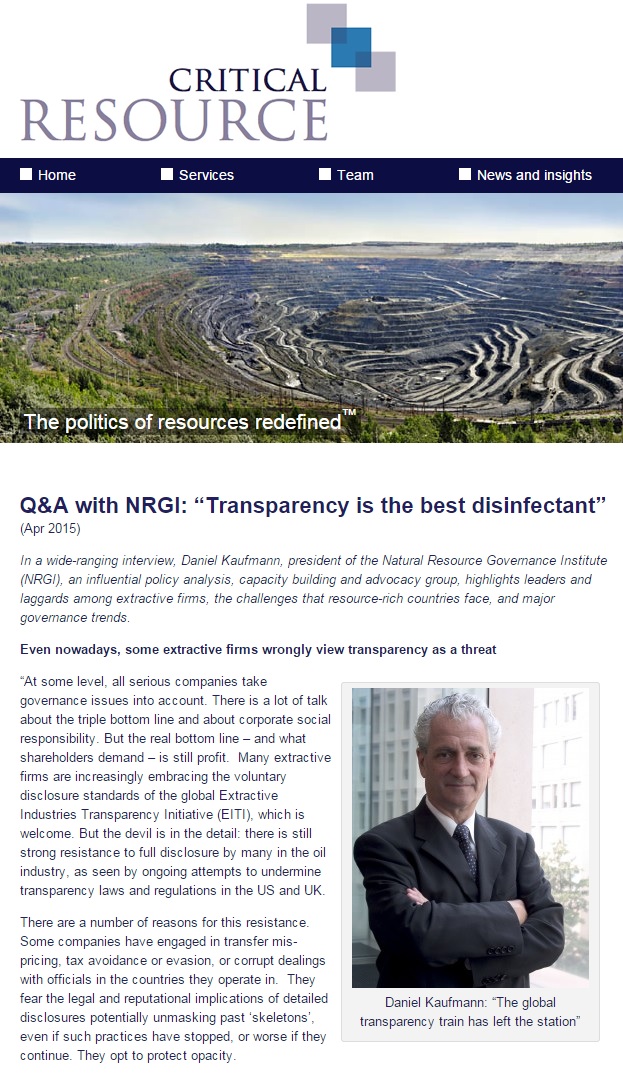
"Transparency Is the Best Disinfectant"
In a wide-ranging interview this month with Critical Resource, NRGI president Daniel Kaufmann discusses differences in corporate behavior between the mining and hydrocarbon sectors, as well as the advantages of mandatory disclosure and the value it can add to the Extractive Industries Transparency Initiative (EITI).
An excerpt from the interview is below. You can read the entire piece here.
“Significant focus is placed on governance improvements by private companies. These days, insufficient emphasis is given to the dire need to improve the performance of state-owned companies in oil, gas and mining. We are focusing on this huge challenge; national companies play a major role in the economies of many resource-rich countries.
“There is some variation. Chile's Codelco for instance is one of the best state-run companies in the world, even if further improvements are still needed. Generally however, these firms are plagued by organizational, efficiency and integrity problems. This is evident in the likes of the Democratic Republic of Congo's mining company Gécamines, or the national oil companies of Venezuela, Equatorial Guinea or Nigeria. The major corruption scandal currently plaguing Petrobras (and the political elite) in Brazil exemplifies the governance vulnerabilities in the sector. These challenges can be encountered even in powerful countries that had been generally progressing in the right direction for many years.
“Governments need to address the governance challenges of these state firms, including by corporatization, subjecting them to the competitive market and transparency, clarifying their remit, and by meritocratic selection of their leadership.
“The private sector can also help improve the governance of these firms, often indirectly, whether via their own example, technical assistance, joint ventures, and steering them towards becoming more market-oriented and competitive. Industry can also be supportive of the role that civil society and academics play in promoting reforms, not only for state enterprises but in extractive governance more generally. And industry can provide specialized training; in fact we have collaborated with industry on training activities in some countries already.”
